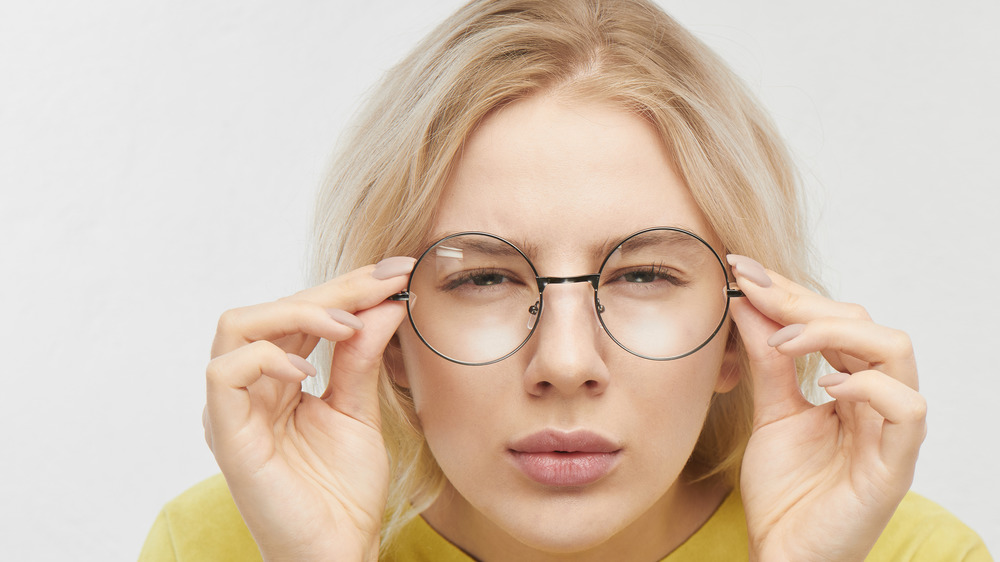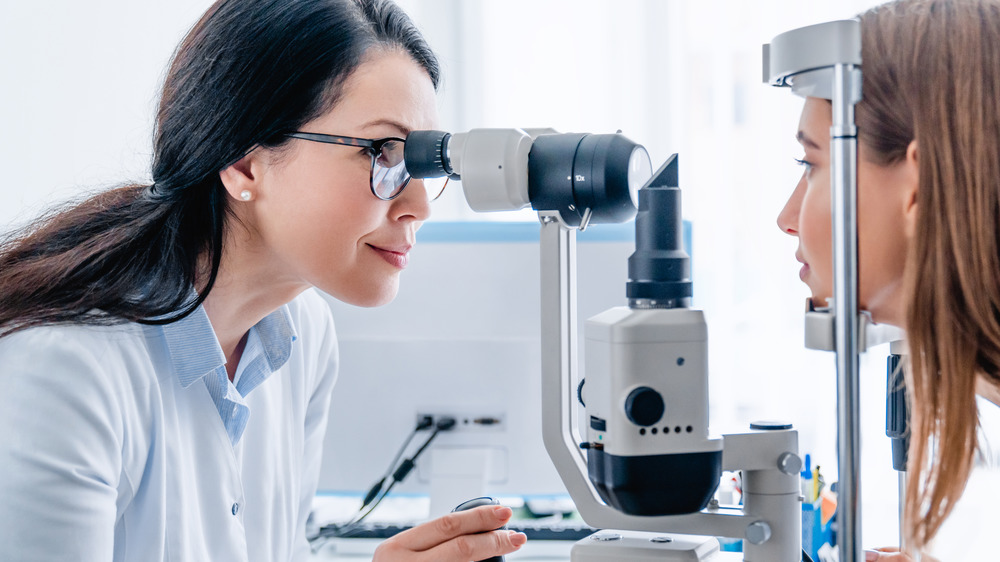Is Squinting Too Much Bad For Your Eyes?
We can all hear our mothers or grandmothers in the back of our heads: "Stop squinting! You'll hurt your eyes!" It was almost as common a parental warning as "Don't run with scissors, you'll put your eye out" and "If you keep making that face it'll stick that way!" So is Mom's warning about squinting based in reality (like running with scissors) or is it more of an old wives tale? According to doctors, it's the latter.
According to Dr. Jay Pepose, an ophthalmologist with the Pepose Vision Institute in St. Louis, while squinting in order to bring things either close up or far away into better focus could very well be a sign that you may already need glasses, it's not going to compound the issue by making your vision any worse (via ABC News). So while you may want to get your vision checked if you or those close to you notice you're squinting a lot, "You can squint all you want" without fear of doing yourself harm, said Pepose.
Why you should see your eye doctor
While squinting may not be harmful, it also isn't going to solve a vision problem in the long term. That said, it does actually help you see better in that moment. "Squinting is an attempt to make the pupil smaller — it lets in less light," explains Dr. Richard Rosen, director of ophthalmology research at New York Eye and Ear Infirmary. "By closing your lids together it further enhances your focus" (via ABC News). This is why you're inclined to squint when you're having trouble bringing something into perfectly clear focus. The most likely reason you're squinting, according to Dr. Kenneth Chang, a comprehensive ophthalmologist at the Massachusetts Eye and Ear Infirmary, is because "you have a refractive error [where the eye cannot bend light correctly, resulting in blurry vision — such as near- or farsightedness], which is why it's a good idea to see your eye doctor if you find yourself squinting.
Getting your eyes checked regularly, even if you aren't squinting to read this article, is also a good idea. The CDC recommends beginning eye exams for children between the ages of three and five, and continuing regular exams throughout life. Not only will this help to catch and remedy and vision changes that require corrective lenses, but it also prevents dangerous and potentially-blinding diseases from sneaking up on you. Things like cataracts, diabetic retinopathy, glaucoma, and age-related macular degeneration can all be detected early with regular exams, thereby allowing intervention (via CDC.gov).

